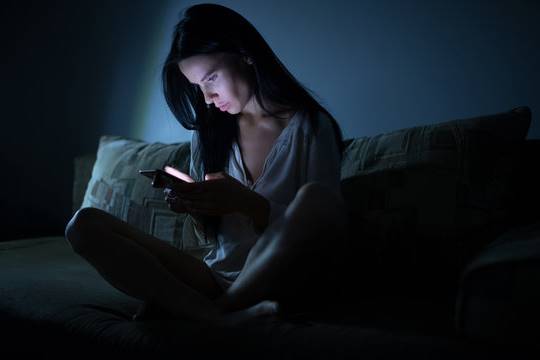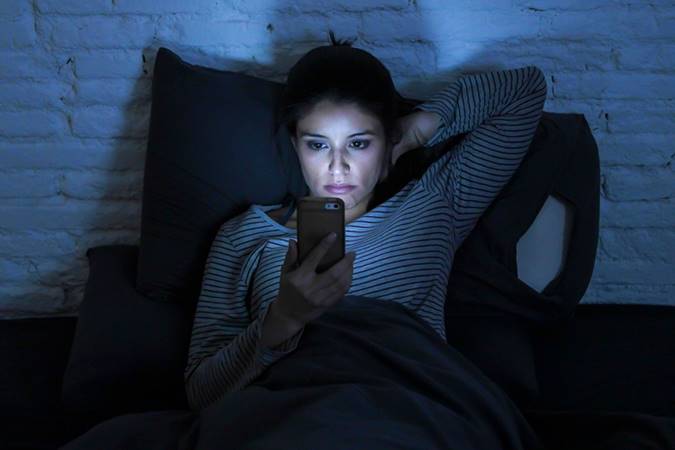Dark circles under the eyes have long been associated with inadequate sleep, stress, and fatigue. In today’s digital age, where smartphones have become fundamental to our lives, concerns have arisen about whether excessive phone use could lead to the development of dark circles. This article aims to dive into the connection between phone usage and dark circles, exploring the scientific evidence and dispelling common myths.
Understanding Dark Circles
Dark circles are the result of various factors such as skin characteristics, lifestyle, and genetics. The delicate skin around the eyes is thinner than other parts of the body, making blood vessels and underlying structures more visible. When blood vessels leak and dilate, and when melanin accumulates in the skin, dark circles become more prominent. While lack of sleep and fatigue are commonly associated with dark circles, other contributing factors include poor circulation, dehydration, allergies, genetics, and age.
Does Using Phone Cause Dark Circles?

Yes, but not directly. Especially before bed, prolonged phone use, may lead to dark circles due to disrupted sleep patterns and strained eyes. However, multiple factors like sleep quality, genetics, and overall health also influence their appearance. Proper sleep, balancing screen time, and eye care can help minimize their development.
The Impact of Phone Use on Sleep
Smartphone screens emit blue light, which can disrupt the body’s natural melatonin production, a hormone that regulates sleep. Especially in the evening, prolonged exposure to blue light may inhibit the ability to fall asleep and disrupt circadian rhythms. This can cause poor-quality and insufficient sleep, which is a known contributor to the development of dark circles.
However, it’s important to note that it’s not the phone itself leading to dark circles, but rather the disruption of sleep patterns due to untimely and prolonged screen exposure. It’s the blue light emitted by screens that affects sleep quality, not the act of using a phone itself.
Eye Strain and Its Connection to Dark Circles
Another issue is eye strain caused by long periods of phone use. Staring at a screen for prolonged periods can lead to eye dryness, fatigue, and discomfort. While eye strain doesn’t directly lead to dark circles, it can contribute to the appearance of puffy and tired eyes, which can exacerbate the visual prominence of existing dark circles.
Practical Measures to Reduce the Impact
To mitigate the impact of phone use on dark circles, several steps can be taken:
- Limit Screen Time: Especially in the evening, lessen the amount of time spent staring at screens to minimize disruption to sleep patterns.
- Blue Light Filters: Many smartphones offer blue light filter settings that limit the amount of blue light emitted by the screen, particularly during the evening.
- 20-20-20 Rule: Adhere to the 20-20-20 rule, which involves taking a 20-second break every twenty minutes to look at an object 20 feet away. This helps reduce eye strain.
- Quality Sleep: Prioritize a consistent sleep schedule and create a sleep-conducive environment by reducing screen exposure before bedtime and dimming lights.
- Hydration and Nutrition: Stay adequately hydrated and maintain a balanced diet rich in minerals, vitamins, and antioxidants that promote skin health.
- Skincare Routine: Incorporate a skincare routine that includes protecting and moisturizing the delicate skin around the eyes.
- Allergy Management: Address allergies that can contribute to eye puffiness and irritation, which may worsen the appearance of dark circles.
In conclusion, while too much phone use itself doesn’t directly cause dark circles, the blue light emitted by screens and its impact on sleep patterns can contribute to their development. Dark circles are a multifactorial issue influenced by genetics, skincare habits and lifestyle. To minimize the appearance of dark circles and maintain healthy-looking skin, it’s important to strike a balance quality sleep, overall well-being and between screen time.


